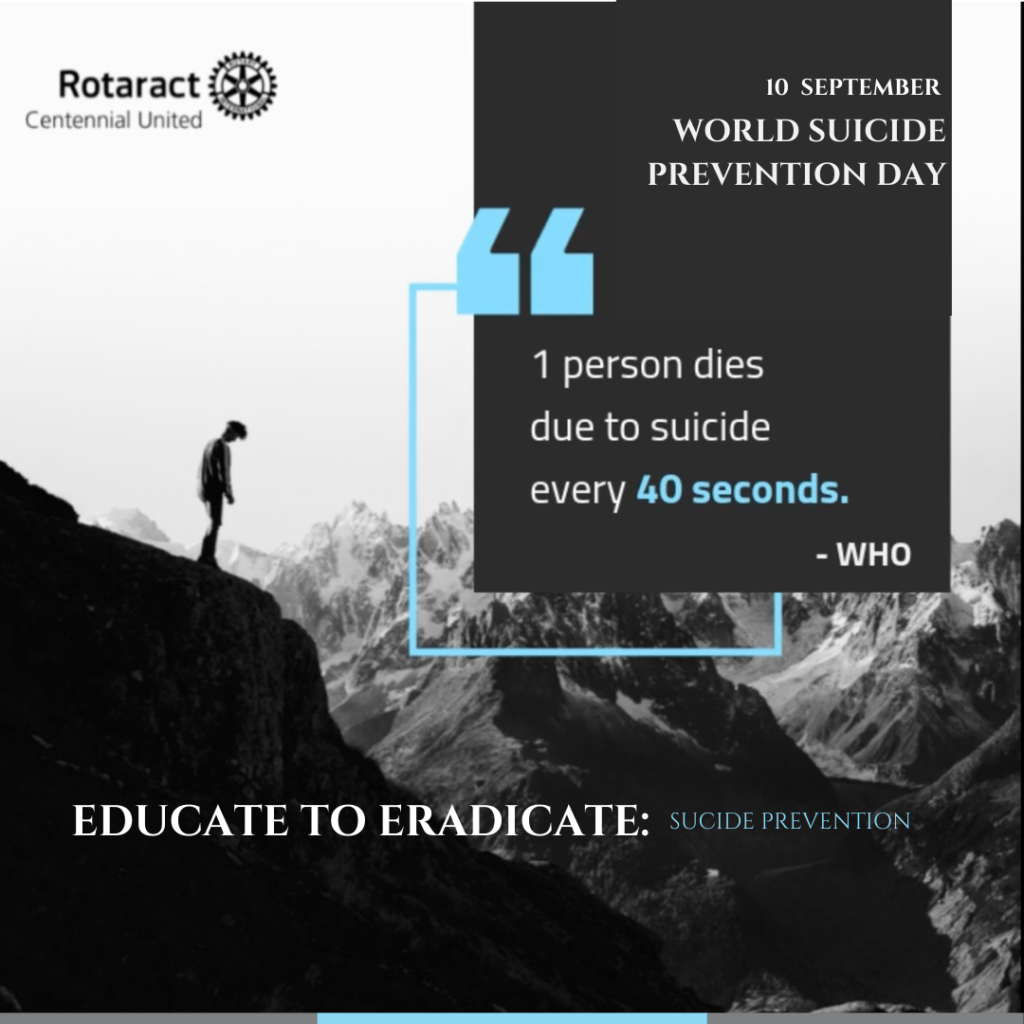Educate to Eradicate: Suicide Prevention

Suicide is still seen as a taboo instead of a serious health problem. More than 800 000 people are considered to be victims of suicide every year, which is one person every 40 seconds.
Suicide is a global phenomenon and occurs throughout our lifespan in different stages of our lives. Suicide is a desperate attempt to escape suffering that has become unbearable. Blinded by feelings of self-loathing, hopelessness, and isolation, a suicidal person can’t see any way of finding relief except through death. But despite their desire for the pain to stop, most suicidal people are deeply conflicted about ending their own lives. They wish there was an alternative to suicide, but they just can’t see one.
Almost everyone who attempts suicide has given some clue or warning. Therefore don’t ignore even indirect references to death or suicide from your close peers. Statements such as “You’ll be sorry when I’m gone,”
“I can’t see any way out,” no matter how casually or jokingly said may indicate suicidal thoughts.
The best way to prevent suicide is to recognise these warning signs and know how to respond if you spot them. If you believe that a friend or family member is suicidal, you can play a role in suicide prevention by pointing out the alternatives, showing that you care, and getting a doctor or psychologist involved
Ways we can start a conversation:
- “I have been feeling concerned about you lately.”
- “I wanted to check in with you because you haven’t seemed yourself lately.”
- “Recently, I’ve noticed some differences in you and wondered how you are doing.”
Questions you can ask:
- “When did you begin feeling like this?”
- “Did something happen to make you start feeling this way?”
- “How can I best support you right now?”
- “Have you thought about getting help?”
What you can say that helps:
- “You are not alone in this. I’m here for you.”
- “You may not believe it now, but the way you’re feeling will change.”
- “I may not be able to understand exactly how you feel, but I care about you and want to help.”
Source: https://www.helpguide.org
Many people do not seek treatment because they fail to recognise the signs and symptoms, or they are too embarrassed to reach out for help. The majority of the conditions can be treated, allowing people to recover and lead productive and satisfying lives. Therefore do reach out to seek professional help and talk with your family, friend or someone closer to you. Today there are many organisations dedicated to operate specific hotlines where you can reach out to them and seek help for free of charge.
Here are some organisations that you can reach out in Sri Lanka to seek help,
National Institute of Mental Health
Hotline: 1926 (24/7)
Website: https://nimh.health.gov.lk
Sri Lanka Sumithrayo
Hotline: 011 268 2535
Website: srilankasumithrayo.org
Sri Lanka Beautiful Minds
Hotline: +94 76 680 0657
CCC Foundation – Sri Lanka
Hotline: 1333
